History of GrandPals
Eight years ago Marc Mailhot wanted his third-grade students to recognize social concerns of this community and focus on character building. He believed students could learn empathy by socializing with seniors having disabilities at the nearby nursing home, and set up a program where his kids played card games with those seniors. He discovered that his students had skills when relating to these seniors that they hadn't exhibited at school. One boy, who was unfocused and hyper during class time, took his responsibility with the senior seriously. The third-grader exhibited a lot of self-esteem, went right up to Jim, who'd had a stroke and could no longer talk or move his hands well, introduced himself and said, "You and I are going to take on those guys and beat them at cards. You tell me what card to play and I'll do it. We can beat those guys for sure." The program was enlarged. After each visit, the students wrote three sentences about their senior friend and they drew pictures illustrating their impressions. Those notes were typed and handed to the seniors at the end of the term. From that starting point the program has expanded.
For five years The Montgomery Village Public School fifth graders have met with seniors at Chartwell Montgomery Village Retirement residence one hour each week, attended dinner parties together, and visited the local museum. This year 55 students, including fourth graders, are participating with 15 resident seniors and 6 seniors associated with the Rotary Club. Mailhot says the visits are making a real difference not only in an educational way but also in the human way. "Not only do they develop literacy skills from across the curriculum, they also develop skills of collaboration, interpersonal communication, and a broader historical understanding." (2) He noticed how the students stop referring to their pal as a senior, but refer to them as "my friend." The biographies the students write about their GrandPals show an understanding of what their community was like years ago, what various jobs were like, what goals and missions motivated their senior friends throughout their lives. Mailhot said, "I had one student realize that if they don't write down and tell these stories, then nobody will, and that's absolutely true." (1) Lynda Brown, the second teacher overseeing this year's program, said, "This is a unique way of learning. It's inclusive, it promotes engagement, it's just a great initiative. The quality of work these students produce is phenomenal. They spend hours upon hours researching and writing their stories, they do all their own art work." They double as historical reporters. (1)
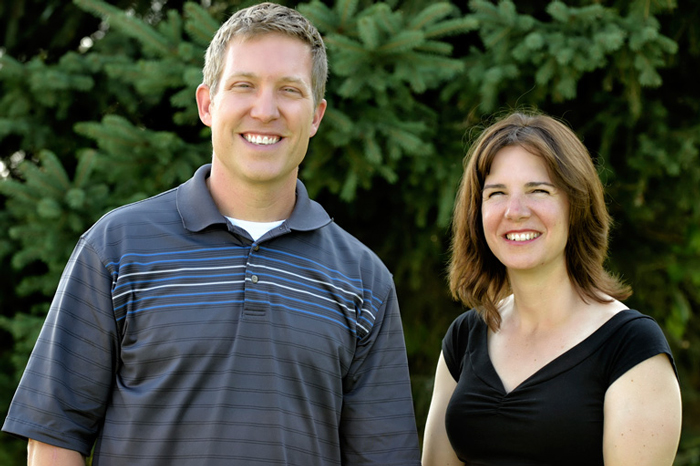
Need for such programs
I used to volunteer at a Toronto junior kindergarten. Most of those students, age four or five, were recent immigrants to Canada, so their grandparents lived abroad. I smile when I remember how one little fellow looked at my bony hands, riddled with big blue veins, and said with concern, "Doesn't it hurt? What happened to you?" Gradually, as I built Lego houses or played with dolls in the doll house with those children, they got to think of me as their friend. Today where generations are often separated due to work or other circumstances, young children often have no concept of what the life of a senior is like, yet throughout their working lives they will be dealing with seniors more and more frequently. The GrandPals program addresses this concern, and teaches history through the experiences of actual people. Mailhot and Brown were awarded the (Canadian) Governor General's History Award for Excellence in Teaching in November, 2017. (1) Janet Walker, President and CEO of Canada's History is quoted as saying, "With this award, we celebrate the extraordinary work of teachers who outdo themselves every day to shape the adults of tomorrow. Knowledge of our history is a fundamental element of this education. The winners certainly have a significant influence on their students, enabling them to understand their history through unique and innovative projects." (1)
Curriculum of the program
Mailhot is constantly revising the three-term curriculum. The first term, from September through December, focuses on self-awareness, the second term, from January to March, focuses on getting to know the senior pal, and the third term, from late March through June, focuses on writing the life story of the senior GrandPal. Mailhot chose weekly discussion themes, which are equally interesting to people of all ages. Students and seniors write answers to questions and create illustrations. Their written answers are discussed at the weekly meetings.
THEMES OF THE FIRST TERM: (1) HOME. (what the term means, where home has been, who has been a part of home, etc.) (2) FAMILY. (what the word means, who is part of your family, your family tree, family activities, etc.) (3) WORK. (what the word means, your tasks and chores and jobs, the most important job in the world, your most important job and most fun job, etc.) (4) HOBBIES. (what you think of when you hear this word, difference between work and hobby, your hobbies, things you need to learn, etc.) (5) TRADITIONS, ROUTINES & HABITS. (your family traditions, the values of these traditions, your routines, your habits, etc.) (6) CHRISTMAS. (what you look forward to, giving and receiving gifts, favorite foods, New Year's Eve activities, values of traditions, etc.)
THEMES OF THE SECOND TERM: (1) CHRISTMAS AND NEW YEAR REVIEWS. (what you did, visit with someone special, gifts, favourite foods, celebration of New Years, etc.) (2) HUMOUR, FUN AND THRILLS. (The GrandPals team will read the story in their curriculum package: "The Dead Bird Collection" by Michael Wade," and discuss how this story reminds them of their own stories, when they laughed, funny things that happened in their life, people they shared fun and laughter with, etc.) (3) ADVENTURE. (what an adventure is, someone who has a strong 'sense of adventure,' your own adventures, something dangerous or scary, who you shared the adventure with, etc.) (4) TRAVEL. (where you have been, your experiences, friends or family who live in another part of the world, where you would like to go, etc.) (5) LEARNING. (what this word means, what you love to learn about, what makes learning fun, your school experiences, your most interesting, most boring, your scary and frightening experiences, attributes of a great teacher, what everyone needs to learn, etc.) (6) SERVICE. (what the word means, about someone who helped you, someone who is especially helpful, how you have been helpful, your hero, kinds of problems you help with, opportunities you will have in future, etc.) (7) MUSIC. (what makes you sing, what music comes to mind, how music makes you feel, where you learned a particular song, reasons to listen to music, instruments, concerts, your favorites, what song represents the type of person you are, etc.) (8) MOVIES AND BOOKS. (favorite movies and books, types you like (fiction, non-fiction), why, what makes a movie great, list of movie themes that you enjoy, memorable books, etc.) (9) BEING A GOOD PERSON. (Do you consider yourself to be "a good person"? your best qualities, strengths, weaknesses, how you help others, what being a good person entails, what principles you live by, what stops some people from changing. Share a story about making yourself a better person.)
THIRD TERM - TO BE ANNOUNCED.
MEETINGS WITH MY GRANDPALS
Gina and Amy (names changed), my two GrandPals, were assigned by the teachers after observing the rapport established between children and various seniors during the early sessions. Gina, a fifth grader, is a take-charge type of young lady, and Amy (a fourth grader) is a shy, methodical young lady. At every session each girl presents her "video presentation," (stapled booklet comprised of computer-generated drawings plus screened photos with typed answer to theme questions), or they read their hand printed answers to the questions. Then I read my presentation.
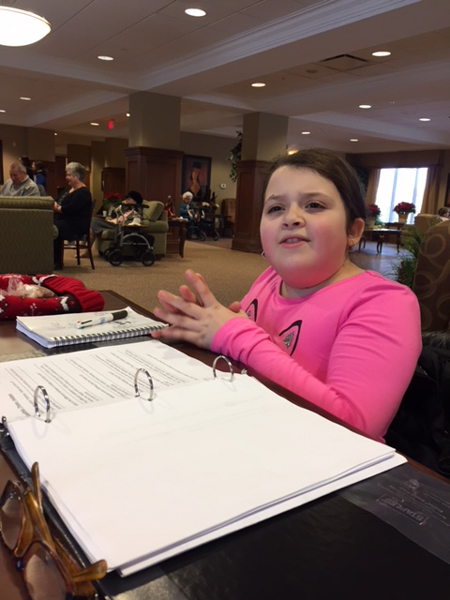 |
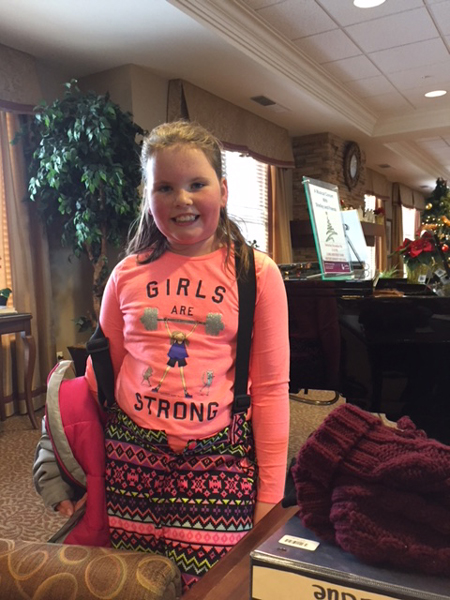 |
|
| My Grandpal, Gina, enters our discussion (left) My Grandpal, Amy, arrives for our weekly session (right) | ||
The sessions are not only opportunities to share information about each other, but also afford time to discuss issues. One memorable sharing happened with Amy when we discussed how we each dealt with bullies. We found that we both felt intimidated by a bully and tended to give in to the bully's wishes unless that called for comprising our principles. And we agreed that if we quietly stated our idea, often, at a later time, the bully might state that idea and claim it as his/her own. Gina and I discussed her future which she'd laid out. She is going to be a lawyer, and will decide what kind of lawyer when she gets to law school. We discussed the skills she would need to learn. I pointed out that already she can write good sentences and soon will be writing good paragraphs and essays like she will be writing summaries of law cases. Both girls commiserated with me when I said that as a hobby I would like to learn to sketch things I saw. I said that I didn't think I was as observant as an artist should be. As I listed the details of a rabbit, Amy drew my description. Her drawing was quite realistic. I said I probably would have made the body bigger and the face too flat. When Amy amended the drawing to incorporate my suggestions, it looked like a cartoon bunny, and we all laughed. Gina said I could copy the drawing of the rabbit off an internet image, and Amy said I could also draw stick figure bunnies, or I could just draw fat rabbits.
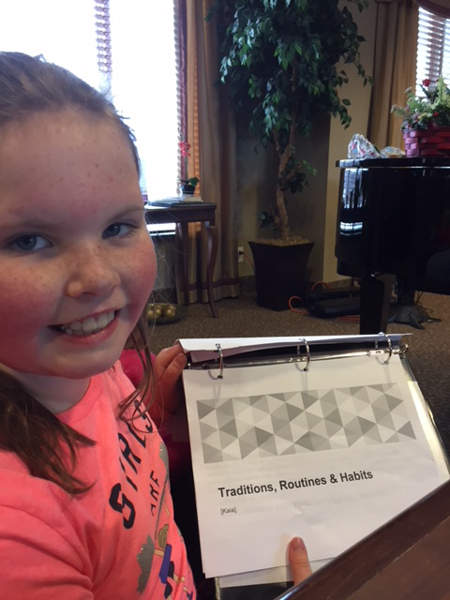 |
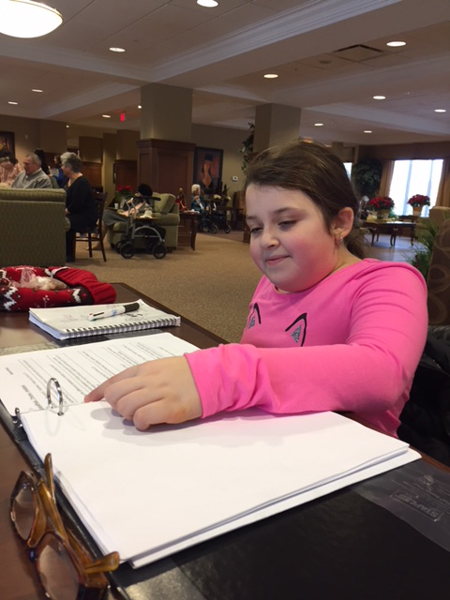 |
|
| Amy gives her "video" presentation (left) Gina reads her answers to the theme discussion (right) | ||
Financing the program
Mailhot foots the cost of the web site, the only direct financial outlay of the program; however, Mailhot and Brown donate a lot of time writing the programs. In addition, teachers, parents, leaders of community organizations, and administrators of the retirement homes that work with him donate time to make arrangements to carry out the weekly meetings, print materials, and arrange transportation, when necessary.
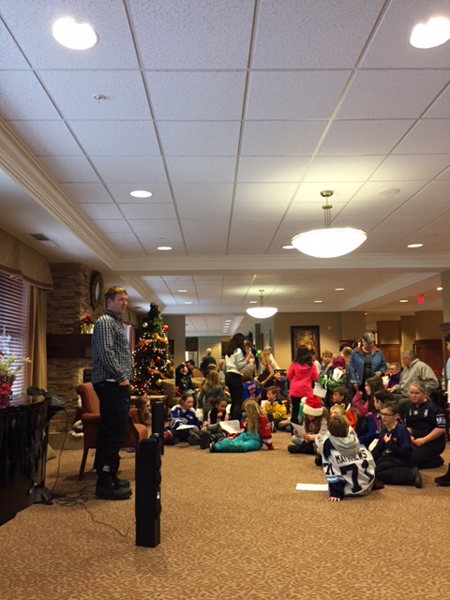 |
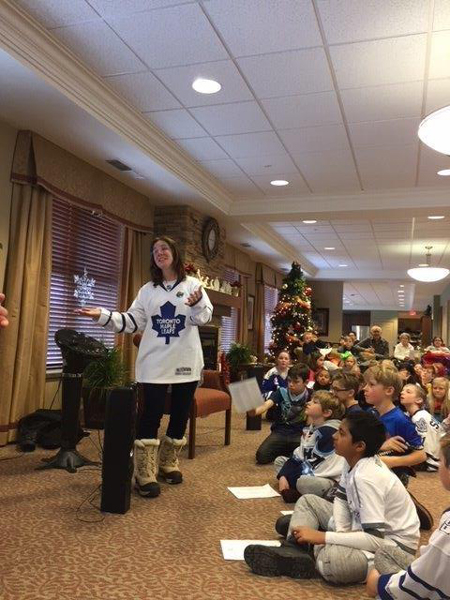 |
||
| Marc Mailhot introduces the Christmas program to GrandPals at Montgomery Village Retirement Home (left) Lynda Brown thanks the staff, students, and seniors for contributions to GrandPals (right) | |||
Conclusion
The GrandPals program fosters friendships between children and seniors, who differ greatly. It allows empathy to happen, and empathy allows a person to see what the life of someone very different from themselves is like. It's a skill that breaks down prejudice. This understanding fosters peaceful ways to get along in the world and address social problems. It takes place by sharing the answers to specific questions, which reveal similar and different feelings and perceptions. It's a program where history is taught by seniors who have lived through events, where their life experiences give the students examples of how difficulties were overcome. This curriculum can easily be modified to fit the needs of different communities. It calls for dedicated teachers and leaders who make time to carry out the necessary arrangements for the meetings, adjust the curriculum to local needs, print and distribute materials. Mailhot believes that the web page is a necessary vehicle to "freely share our learning and resources as you undertake your own unique version of GrandPals in your own community." (2)
References:
- (1) Pickford, Mike. November 16, 2017. "Local teachers receive Governor General Award for Excellence." The Orangeville Citizen. Pg. 4
- (2) Mailhot, Marc. Teacher, Montgomery Village Public School, Orangeville, Ontario, Canada. "About GrandPals: GrandPals: Connecting generations to build a stronger Canada." http://grandpals.ca/about/grandpals/ Retrieved 12/12/2017.
- (3) "Donation from Orangeville Rotary Club will help grow the GrandPals program." Sept. 29, 2016. Orangeville Citizen, http://citizen.on.ca/?p=7249 Retrieved 05/12/2017.



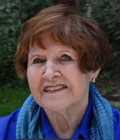 Marlene Ritchie
Marlene Ritchie










